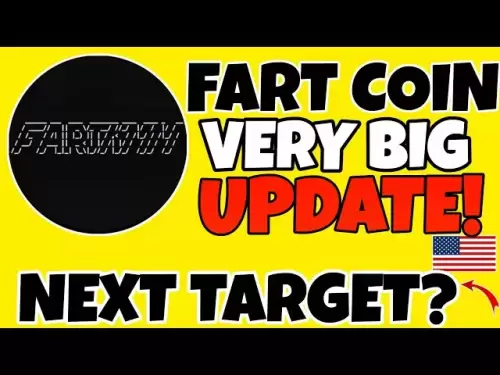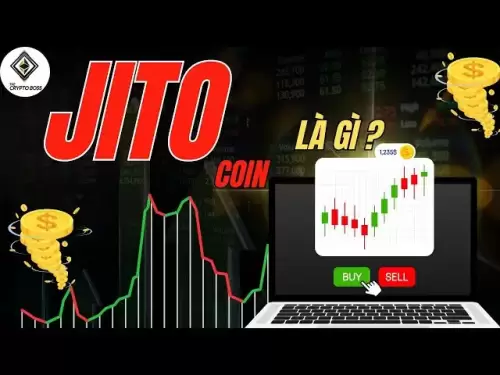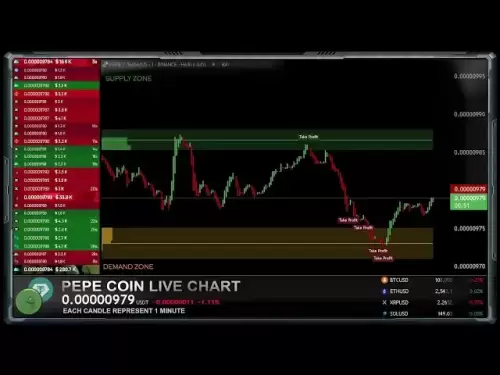-
 Bitcoin
Bitcoin $107,810.8710
-1.45% -
 Ethereum
Ethereum $2,531.4386
-1.75% -
 Tether USDt
Tether USDt $1.0000
-0.03% -
 XRP
XRP $2.2542
-0.99% -
 BNB
BNB $659.1350
-0.50% -
 Solana
Solana $148.5456
-2.40% -
 USDC
USDC $0.9999
-0.02% -
 TRON
TRON $0.2868
-0.44% -
 Dogecoin
Dogecoin $0.1666
-3.65% -
 Cardano
Cardano $0.5751
-2.36% -
 Hyperliquid
Hyperliquid $37.6845
-5.51% -
 Bitcoin Cash
Bitcoin Cash $494.9448
-0.65% -
 Sui
Sui $2.8396
-3.31% -
 Chainlink
Chainlink $13.2423
-2.59% -
 UNUS SED LEO
UNUS SED LEO $9.0482
0.02% -
 Stellar
Stellar $0.2467
-2.44% -
 Avalanche
Avalanche $17.8165
-3.63% -
 Shiba Inu
Shiba Inu $0.0...01158
-2.41% -
 Toncoin
Toncoin $2.7397
-3.42% -
 Hedera
Hedera $0.1560
-2.73% -
 Litecoin
Litecoin $85.8559
-2.34% -
 Monero
Monero $315.3710
-2.30% -
 Dai
Dai $1.0001
0.00% -
 Polkadot
Polkadot $3.3443
-2.03% -
 Ethena USDe
Ethena USDe $1.0001
0.01% -
 Bitget Token
Bitget Token $4.2888
-3.73% -
 Uniswap
Uniswap $7.3388
-1.57% -
 Aave
Aave $278.2986
-3.05% -
 Pepe
Pepe $0.0...09807
-3.67% -
 Pi
Pi $0.4563
-2.39%
How to choose a trusted Bitcoin wallet provider?
Prioritize security features like multi-factor authentication when choosing a Bitcoin wallet; research provider reputation and user reviews, considering your tech skills and risk tolerance to select a hardware, software, or paper wallet that best suits your needs.
Mar 24, 2025 at 11:49 am
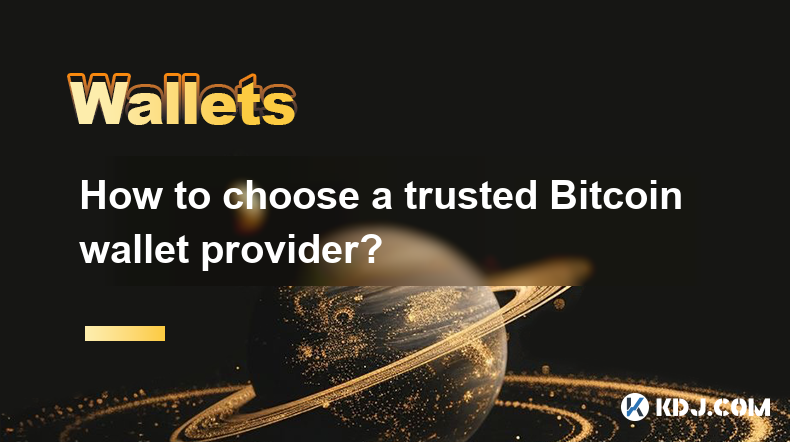
Key Points:
- Understanding your needs (security vs. convenience) is paramount before choosing a Bitcoin wallet provider.
- Security features like multi-signature, two-factor authentication, and reputable security audits are crucial.
- Consider the wallet type (hardware, software, paper) based on your technical skills and risk tolerance.
- Research the provider's reputation, history, and user reviews before entrusting them with your Bitcoin.
- Beware of scams and phishing attempts; verify the legitimacy of any communication.
How to Choose a Trusted Bitcoin Wallet Provider?
Choosing a Bitcoin wallet provider is a critical decision for anyone holding Bitcoin. Your choice directly impacts the security and accessibility of your funds. This guide outlines key factors to consider when selecting a trusted provider.
First, define your needs. Are you a seasoned crypto investor prioritizing maximum security, or are you a newcomer seeking a user-friendly experience? This will significantly influence your wallet choice. A hardware wallet offers superior security but requires more technical understanding, while a mobile wallet prioritizes convenience but might have slightly reduced security.
Next, delve into the security features offered. Look for wallets supporting multi-signature transactions, requiring multiple confirmations before releasing funds. Two-factor authentication (2FA) adds an extra layer of protection, preventing unauthorized access even if your password is compromised. Reputable providers undergo regular security audits, the results of which should be publicly available.
The type of wallet is another crucial aspect. Hardware wallets, like Ledger and Trezor, store your private keys offline, offering the highest level of security against hacking. Software wallets, available as desktop applications or mobile apps, are more convenient but require vigilance against malware and phishing. Paper wallets, essentially printed private keys, offer offline security but are vulnerable to physical damage or loss.
Thorough research is essential. Investigate the provider's reputation, track record, and user reviews. Look for evidence of transparency and a commitment to security best practices. Avoid providers with limited or negative online reviews, or those lacking readily available information about their security measures.
Remember to be vigilant against scams. Phishing attempts are common in the cryptocurrency space. Never click on suspicious links or share your private keys with anyone. Always verify the legitimacy of any communication from a supposed wallet provider before taking any action. Check their official website and contact details to confirm their authenticity.
Choosing a wallet provider involves a careful balancing act between security and convenience. There's no single "best" wallet for everyone; the ideal choice depends on individual needs and circumstances. Prioritize security features, conduct thorough research, and remain vigilant against scams to protect your Bitcoin investment.
Understanding Different Wallet Types:
- Hardware Wallets: These physical devices store your private keys offline, offering maximum security against hacking. They are generally more expensive than software wallets.
- Software Wallets: These are applications installed on your computer, mobile phone, or tablet. They are convenient but more vulnerable to malware and hacking if not properly secured.
- Web Wallets: These are online wallets accessed through a browser. They are convenient but carry the highest risk of theft due to their online nature.
- Paper Wallets: These are printed copies of your public and private keys. They offer offline security but are susceptible to physical damage or loss.
Choosing Based on Your Tech Savviness:
- Beginner: A reputable mobile wallet with good security features and a user-friendly interface is a good starting point.
- Intermediate: A desktop software wallet with strong security protocols offers a balance between security and convenience.
- Advanced: A hardware wallet, combined with a well-understood security strategy, provides the highest level of security.
Common Questions and Answers:
Q: Are all Bitcoin wallet providers equally secure?
A: No. Security features, reputation, and operational practices vary significantly between providers. Thorough research is crucial to identify reputable and secure options.
Q: What happens if I lose my private keys?
A: Losing your private keys means you lose access to your Bitcoin. There is no way to recover them unless you have a backup. This underscores the importance of securely storing your keys.
Q: How can I protect myself from phishing scams?
A: Only access your wallet through official websites and apps. Never click on links from unknown sources, and always verify the sender's identity before responding to communications.
Q: What is the difference between a hot and cold wallet?
A: A hot wallet is always connected to the internet (e.g., mobile or software wallet), making it more convenient but less secure. A cold wallet (e.g., hardware or paper wallet) is offline, offering superior security.
Q: Is it safe to use a web wallet?
A: Web wallets are convenient but carry significant risk due to their online nature. Only use reputable providers with robust security measures and be mindful of potential vulnerabilities.
Q: Should I use the same wallet provider for all my cryptocurrencies?
A: It depends on your preferences. Some users prefer using a single provider for all their cryptocurrencies for ease of management, while others prefer separating them for enhanced security. Consider the security and features offered by each provider for your specific needs.
Disclaimer:info@kdj.com
The information provided is not trading advice. kdj.com does not assume any responsibility for any investments made based on the information provided in this article. Cryptocurrencies are highly volatile and it is highly recommended that you invest with caution after thorough research!
If you believe that the content used on this website infringes your copyright, please contact us immediately (info@kdj.com) and we will delete it promptly.
- KuCoin, AI Incentives, and Gaming RWA: A New Era?
- 2025-07-08 14:30:12
- Meme Token Mania: SPX6900, TOKEN6900, and the Degens Driving Crypto's Brain Rot
- 2025-07-08 14:30:12
- Bitcoin Gains and Strategy Reports: What's the Haps?
- 2025-07-08 15:10:12
- Ripple, XRP ETF, Latest Data: Hopes Fade but Innovation Blooms?
- 2025-07-08 15:10:12
- Eric Trump, Bitcoin Asia, and Hong Kong: A Power Trio Shaping Crypto's Future
- 2025-07-08 14:50:12
- Pumpfun, Token Sale, and Gate Exchange: What's the Deal?
- 2025-07-08 14:50:12
Related knowledge

How to cancel a pending transaction in Phantom wallet?
Jul 03,2025 at 07:21pm
Understanding Pending Transactions in Phantom WalletA pending transaction in the Phantom wallet occurs when a user initiates a transfer or interaction with the Solana blockchain, but it hasn't yet been confirmed by the network. This can happen due to various reasons such as low transaction fees, network congestion, or incorrect gas settings. It's import...

How to see the estimated value of my tokens in Phantom wallet?
Jul 04,2025 at 12:21am
What is Phantom Wallet?Phantom wallet is one of the most popular cryptocurrency wallets designed for the Solana blockchain. It allows users to store, send, receive, and manage various tokens built on Solana, including SPL tokens and NFTs. The wallet offers a user-friendly interface, making it accessible for both beginners and advanced users in the crypt...

How to lock my Phantom wallet extension?
Jul 03,2025 at 11:14am
What Is the Phantom Wallet and Why Lock It?The Phantom wallet is a popular non-custodial cryptocurrency wallet designed for interacting with the Solana blockchain. Supporting both browser extensions and mobile apps, Phantom allows users to store, send, receive, and stake SOL tokens, as well as interact with decentralized applications (dApps). Securing y...

Does Phantom wallet offer two-factor authentication (2FA)?
Jul 03,2025 at 09:00am
Understanding Phantom Wallet and Its Security FeaturesPhantom wallet is a widely used non-custodial cryptocurrency wallet that supports the Solana blockchain. It allows users to store, send, receive, and interact with decentralized applications (dApps) seamlessly. As security is a top priority for any crypto wallet user, security features like two-facto...
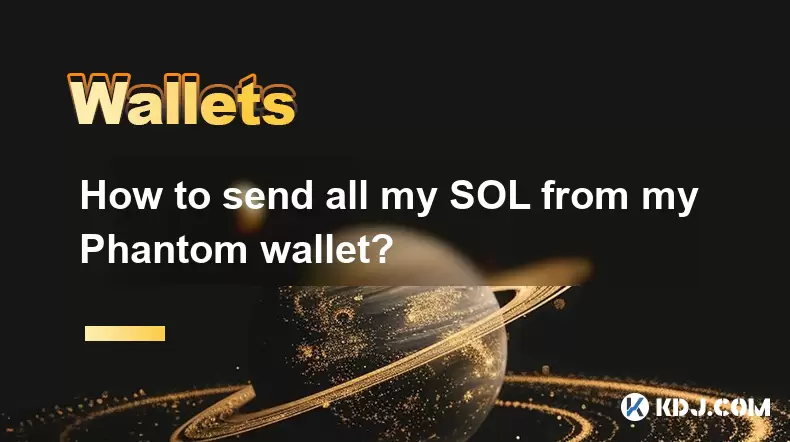
How to send all my SOL from my Phantom wallet?
Jul 06,2025 at 10:00am
Preparing to Send SOL from Your Phantom WalletBefore initiating any transaction, it is crucial to ensure that your Phantom wallet is fully set up and connected to the correct network. Phantom supports multiple networks, but for sending SOL, you must be on the Solana blockchain. Confirm this by checking the network indicator in the top-right corner of th...

What is "rent" on Solana and how does it affect my Phantom wallet?
Jul 02,2025 at 08:35pm
Understanding 'Rent' on SolanaIn the context of Solana, the term 'rent' refers to a storage fee that users pay for maintaining data on the blockchain. Unlike Ethereum, where storage costs are paid once via gas fees during contract deployment, Solana implements a recurring cost model to ensure efficient usage of network resources. This means that any acc...

How to cancel a pending transaction in Phantom wallet?
Jul 03,2025 at 07:21pm
Understanding Pending Transactions in Phantom WalletA pending transaction in the Phantom wallet occurs when a user initiates a transfer or interaction with the Solana blockchain, but it hasn't yet been confirmed by the network. This can happen due to various reasons such as low transaction fees, network congestion, or incorrect gas settings. It's import...

How to see the estimated value of my tokens in Phantom wallet?
Jul 04,2025 at 12:21am
What is Phantom Wallet?Phantom wallet is one of the most popular cryptocurrency wallets designed for the Solana blockchain. It allows users to store, send, receive, and manage various tokens built on Solana, including SPL tokens and NFTs. The wallet offers a user-friendly interface, making it accessible for both beginners and advanced users in the crypt...

How to lock my Phantom wallet extension?
Jul 03,2025 at 11:14am
What Is the Phantom Wallet and Why Lock It?The Phantom wallet is a popular non-custodial cryptocurrency wallet designed for interacting with the Solana blockchain. Supporting both browser extensions and mobile apps, Phantom allows users to store, send, receive, and stake SOL tokens, as well as interact with decentralized applications (dApps). Securing y...

Does Phantom wallet offer two-factor authentication (2FA)?
Jul 03,2025 at 09:00am
Understanding Phantom Wallet and Its Security FeaturesPhantom wallet is a widely used non-custodial cryptocurrency wallet that supports the Solana blockchain. It allows users to store, send, receive, and interact with decentralized applications (dApps) seamlessly. As security is a top priority for any crypto wallet user, security features like two-facto...

How to send all my SOL from my Phantom wallet?
Jul 06,2025 at 10:00am
Preparing to Send SOL from Your Phantom WalletBefore initiating any transaction, it is crucial to ensure that your Phantom wallet is fully set up and connected to the correct network. Phantom supports multiple networks, but for sending SOL, you must be on the Solana blockchain. Confirm this by checking the network indicator in the top-right corner of th...

What is "rent" on Solana and how does it affect my Phantom wallet?
Jul 02,2025 at 08:35pm
Understanding 'Rent' on SolanaIn the context of Solana, the term 'rent' refers to a storage fee that users pay for maintaining data on the blockchain. Unlike Ethereum, where storage costs are paid once via gas fees during contract deployment, Solana implements a recurring cost model to ensure efficient usage of network resources. This means that any acc...
See all articles





















